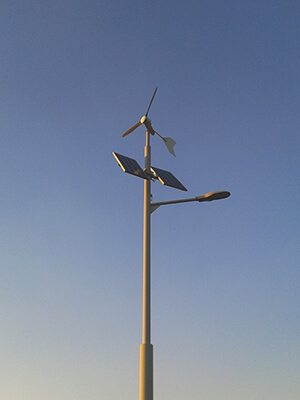This is a lesson summary. The full lesson can be viewed by purchasing an online course subscription.
Learning Objective
In this lesson we will look at ways of reducing energy consumption and compare fossil fuels with alternative sources of energy.
Learning Outcomes
By the end of this lesson you will be able to:
- Describe the benefits of reducing energy consumption and using cleaner sources of energy.
- Describe ways energy consumption around the home can be reduced.
- Describe lifestyle choices that can be made to reduce personal energy consumption.
- Discuss the advantages and disadvantages of using fossil fuels as an energy source.
- Discuss the advantages and disadvantages of different renewable energy sources, as well as hydrogen and nuclear energy.

(Image: ArjanH, Wikimedia Commons)
Lesson Summary
- Energy consumption refers to the amount of energy used for carrying out a given process.
- Energy consumption has financial and environmental costs. Therefore, there are financial and environmental benefits to reducing energy consumption and using cleaner sources of energy.
- Ways of reducing energy consumption around the home include:
- Incorporating passive solar design and insulation.
- Using energy-efficient appliances and light bulbs.
- Making changes to personal habits that reduce energy consumption.
- Other ways of reducing energy consumption include:
- Using greener modes of transport.
- Reducing consumption of consumer goods.
- Reducing consumption of meat and dairy.
- Recycling.
- Fossil fuels – coal, oil and natural gas – account for most of the world’s energy consumption.
- However, fossil fuels are a non-renewable resource and their use has significant environmental impacts, such as contributing to climate change.
- Therefore, reducing the use of fossil fuels and switching to alternative sources of energy can reduce the environmental impacts of energy consumption and ensure a continuous energy supply in the future.
- Alternatives to fossil fuels include:
- Renewable energy, including:
- Hydroelectricity
- Solar energy
- Wind energy
- Wave and tidal energy
- Geothermal energy
- Biofuels
- Hydrogen
- Nuclear energy

(Image: Roman Babakin, Adobe Stock)
(Header image: PX Media, Adobe Stock)
